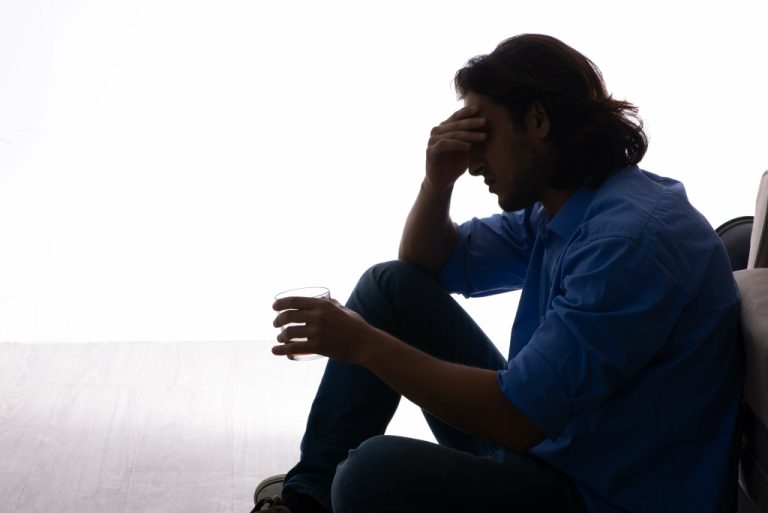You may find—besides stopping alcohol consumption—other negative behaviors and feelings still exist because they have not been addressed in a healthy way. Your relationships may become even more strained, as some friends and family members who considered you to be “fun” while you were drinking now perceive you unpleasantly. Even after being sober for years, the potential for an Alcohol Relapse is always possible. However, just because a relapse occurs doesn’t mean someone has failed recovery.

Becoming a volunteer is another great way to take care of your mental health while also helping others in need. Alcoholism is a chronic, relapsing disorder that is similar to other chronic conditions such as type II diabetes, cancer, https://ecosoberhouse.com/ and cardiovascular disease. Because of this, a relapse may occur at least once in a person’s life once they have quit drinking. Understanding that a relapse may occur can be your first defense again preventing one from happening.
What Happens After an Alcohol Relapse?
Understanding triggers for alcohol use is important for someone in recovery and their loved ones. If someone knows their triggers, they can better avoid them and reduce their risk of a relapse. Immediately after a relapse, you should contact your support network to assemble a game plan.
- The test is free, confidential, and no personal information is needed to receive the result.
- More than 85% of people recovering from addiction will relapse and return to their substance of choice within a year of treatment.
- It may be a one-time lapse or a more sustained return to drinking but it can seriously affect a person’s confidence or cause them to feel like they have failed.
- Discourage those with peers who drink heavily, as this company could spur a relapse.
According to the American Society of Addiction Medicine as well as the American Medical Association, addiction is a disease. Some people quickly realize what they’ve done and normalize while others will spend months back in the sorry throes of addiction. In the United States, over 10% of children live with an adult who abuses or is addicted to alcohol. This has a profound effect on their upbringing and can have repercussions that continue through their lives. Choosing recovery close to home means your support system is just a few miles away.
What is a Relapse?
Different types of relapses exist, including short-term slips, lapses and longer-term relapses. Don’t blame your loved one or shame them for their addiction or relapse. It can be heartbreaking to see a friend or loved one return to something that’s damaging to their lives. Seeing them re-engage with alcohol can make you feel like everything you and they have invested in their recovery has been for nothing. There are many different things that could send an individual with addiction running back to their drug or substance of choice. It was once believed that those with addictions simply had no morals or self-control, and while a lot of people still incorrectly feel that this is the case, research has shown this line of thinking to be false.
- Call us today and we’ll help you or your loved one get back on track.
- Sometimes the voice in their head becomes too difficult to control and they need extra support.
- Recovery is a lifelong process which requires a consistent commitment and maintenance to stay alcohol- and drug-free.
- Daily drinking can have serious consequences for a person’s health, both in the short- and long-term.
- Gone are the days of Nancy Reagan’s 1980s “Just Say No” campaign, which assumed that people were making a choice to use drugs, despite the negative consequences, and that people could simply choose to stop, Moran said.
- If you relapse while operating under a harm-reduction model, it usually means you have gone back to the previous substance you used with the same amount of frequency that you originally tried to reduce or replace.
Once they are on the road to recovery, we must be aware of what could send them into an alcohol relapse. Alcoholism is a chronic disease that takes months or years of treatment and support to recover from. It takes years to conduct studies on people recovering from alcoholism. That’s why 2017 and 2018 alcohol relapse statistics aren’t available yet. However, studies published in recent years provide a picture of current relapse rates. Approximately 90% of alcoholics experience at least one relapse in the four years following treatment.
Stress
DCF — along with the insurance companies that fuel sham treatment facilities — should do a better job of verifying that proven methods are being used, Moran continued. In Florida, some bad-faith treatment facilities offer hope and promises of a quick recovery in the beautiful Sunshine State. But that’s not how drug addiction works, said Dr. Robert Moran, a psychiatrist, addiction medicine specialist, treatment center owner and member of the local Addiction Recovery Task Force. That includes Joseph Havrilla, who traveled to Florida and repeatedly sought help before an overdose took his life in 2022. His girlfriend, Amanda Davidson, is now continuing her own recovery and advocating for life-saving care in the state that failed her and Havrilla. Empathise with that person, listen carefully to what they have to say, but don’t dismiss the problem.